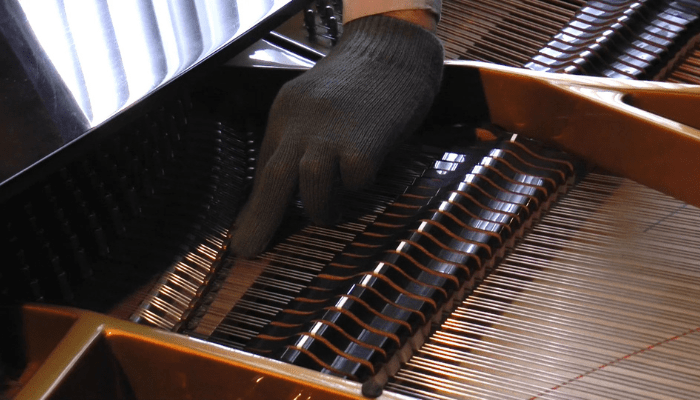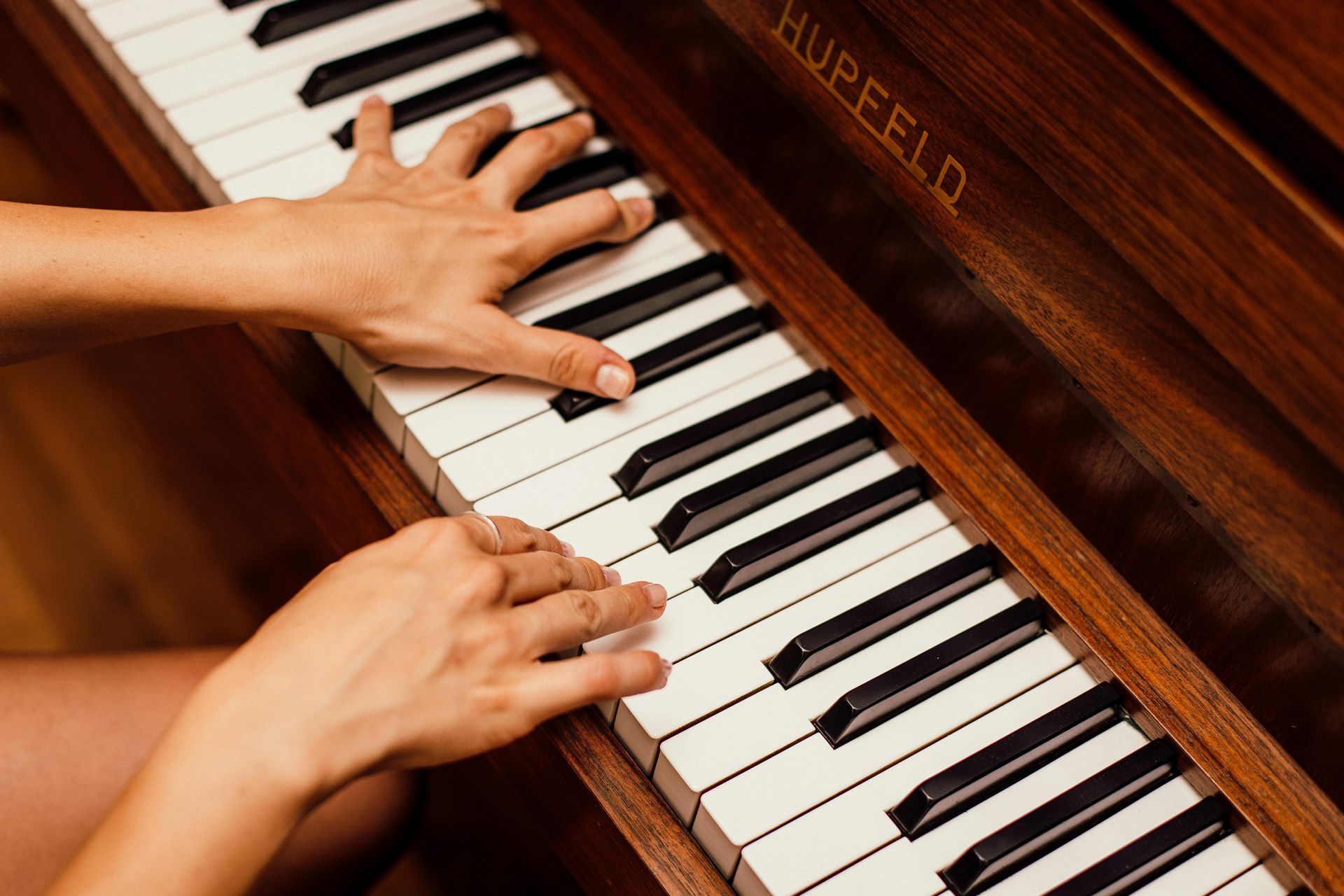Signs That Your Piano Needs Tuning
The Top Signs That Your Piano Needs Tuning
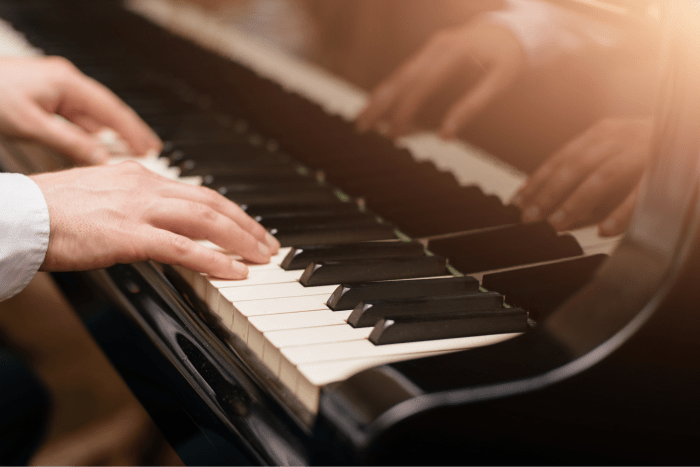
Keeping your piano in tune is essential for maintaining its sound quality and ensuring its longevity.
Whether you have a
Grand Piano or
Upright Piano, recognising the signs that your piano needs tuning can save you from long-term damage and keep your instrument sounding beautiful.
Based in Temora, NSW, Neil Gracie offers professional piano tuning services to ensure your piano stays in perfect pitch.
Why Regular Tuning Is Important
Regular tuning is crucial for all acoustic pianos to maintain their sound quality and tuning stability. Over time, piano strings stretch due to environmental factors like humidity fluctuations and temperature changes.
This natural process can affect the string tension and tuning pins, resulting in an out-of-tune piano.
Piano manufacturers recommend regular maintenance, typically once or twice a year, to ensure your piano stays in concert pitch.
Proper care helps to preserve the tonal quality and ensures your instrument remains a joy to play, whether you’re a music teacher, a student taking piano lessons, or an experienced pianist.
Clear Indications That Your Piano Needs Tuning
It’s not always obvious when your piano needs tuning, but there are some tell-tale signs that piano owners should watch for:
Your Piano Sounds Out of Tune
The most common sign is that your piano sounds out of tune. You might notice notes that no longer align with middle C or single notes that sound noticeably sharp or flat.
This can make playing frustrating, particularly for anyone working to develop their ear for perfect pitch.
Changes in your Piano’s Sound Quality
If your piano starts sounding dull, uneven, or inconsistent, it’s a clear indication that it’s time for professional tuning.
These changes often happen gradually but become more noticeable the longer your piano goes without tuning.
Physical Signs of Tuning Issues
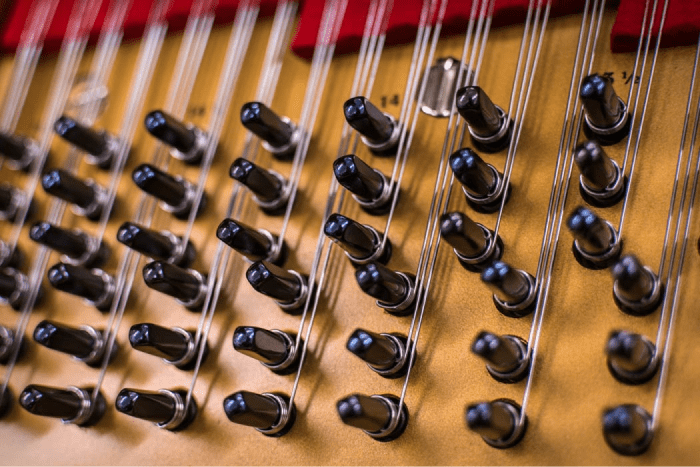
Sometimes, the physical condition of the piano reveals the need for tuning:
• Keys feel stiff, unresponsive, or uneven.
• Strings appear loose or have visibly lost tension.
• Tuning pins seem misaligned or unstable.
It’s Been a Long Time Since Your Last Tuning
If it’s been more than a year since your last tuning, your piano is likely overdue. Older pianos or used pianos that haven’t been tuned in years may also require a pitch raise to restore proper tuning levels.
Environmental Factors That Impact Tuning
Acoustic pianos are sensitive to environmental factors, and even small changes can affect tuning stability.
Temperature fluctuations, or sudden changes in temperature can cause the wooden components of your piano to expand or contract, impacting the string tension.
Fluctuations in humidity, while at times unavoidable, can weaken the tuning pins or cause cracks in the wood.
If you have moved your piano into a new environment, such as a new room in your house, it may need fine-tuning to adjust to the new conditions.
How Often Should You Tune Your Piano?
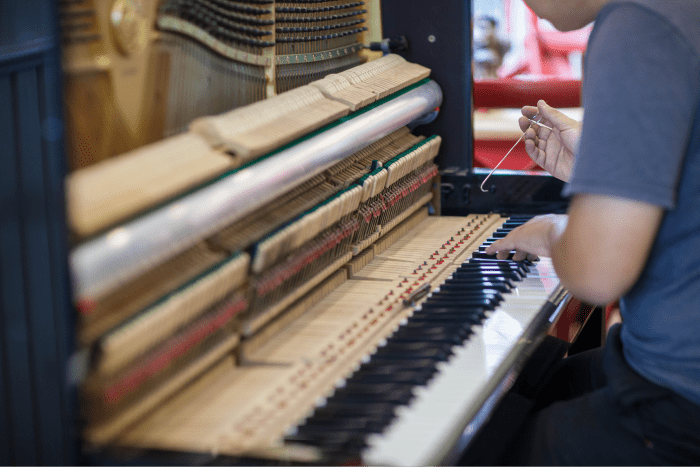
The best time to tune your piano depends on several factors, including its age, usage, and environment:
• New Piano: In the first year of ownership, tuning is needed more frequently—typically three to four times—to account for the natural settling of strings.
• Home Pianos: For pianos in a home setting, tuning once or twice a year is generally sufficient.
• Older Pianos or Used Pianos: These instruments may require more frequent tuning, especially if they haven’t been well-maintained.
• Music Teachers and Professional Use: Pianos used for lessons or performances may need tuning more often to maintain consistent sound quality.
Why Work with a Professional Piano Tuner?
Hiring a professional piano tuner is the best way to ensure your piano is well-maintained and tuned to concert pitch.
Professional tuners use tools like a tuning hammer, tuning fork, or an electronic tuning device to achieve precise tuning. A professional tuner also evaluates other aspects of the piano, such as tuning stability, string tension, and overall condition, to keep your instrument in excellent shape.
Neil Gracie
specialises in servicing acoustic upright pianos across Temora and the surrounding areas of the Riverina.
Whether you need fine-tuning for your home piano or professional maintenance for a Grand Piano, he will have you covered!
Get in touch today to discuss your piano tuning needs!
Frequently Asked Questions About Piano Tuning
How often should I tune my piano?
Pianos should be tuned at least once or twice a year, depending on their usage and environmental conditions. Regular tuning ensures that the instrument maintains proper pitch and sound quality, especially for frequently played pianos. New pianos or those in areas with significant temperature and humidity fluctuations may need tuning more often to account for the settling of strings and the impact of environmental changes.
What happens if I don’t tune my piano?
Neglecting regular tuning can lead to more than just an out-of-tune instrument. Over time, the uneven string tension can damage tuning pins and the frame, making future tunings more challenging and costly. Additionally, an untuned piano may lose its tonal richness and responsiveness, affecting both its playability and your enjoyment of the music.
Do pianos go out of tune even if they aren’t played?
Yes, a piano can go out of tune even if it’s rarely played. Environmental factors like humidity and temperature changes are the main culprits, as they affect the wooden frame and string tension. Over time, these fluctuations can cause the piano to lose its pitch. Regular professional maintenance is essential to keep an unused piano in good condition.
Why is regular piano tuning important?
Regular tuning not only keeps your piano sounding its best but also helps preserve its structural integrity. Over time, the strings naturally stretch, and the wooden components of the piano can shift. Professional tuning ensures that these changes are managed, preventing long-term damage and preserving the instrument’s value. Consistent tuning also allows you to enjoy a beautiful, harmonious sound every time you play.
How can I tell if my piano is out of tune?
Signs of an out-of-tune piano include uneven or sour notes, flat or sharp tones, and chords that sound dissonant. If a note’s pitch doesn’t align with a reference tone, such as an electronic tuner or another instrument, it’s time for a professional tuning. Even subtle changes in tone can affect the overall quality of your music, so it’s best to address tuning issues promptly.
What is the best way to maintain tuning stability between tunings?
The key to maintaining your piano’s tuning stability is creating a controlled environment. Keep your piano in a room with consistent temperature and humidity, ideally between 40–50% humidity. Avoid placing the piano near windows, radiators, or air conditioning vents. Using a humidity control system, such as a dehumidifier or a piano-specific climate control device, can also help protect the instrument from environmental changes. Regular inspections by a professional technician ensure that minor issues are addressed before they become significant problems.



